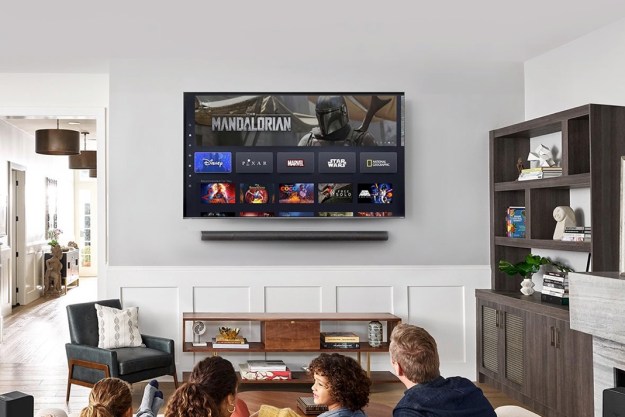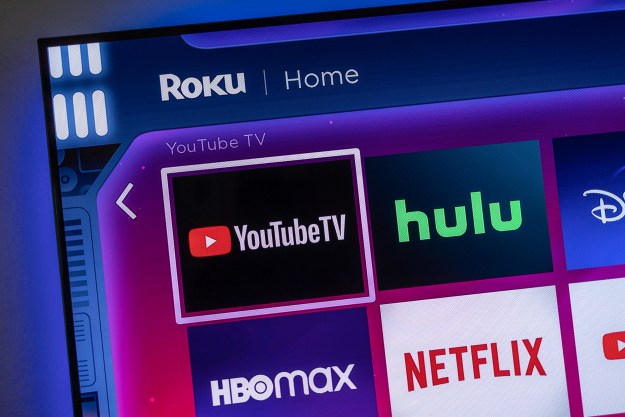
After filing the necessaries with the FCC yesterday for its proposed $45.2 billion mega-merger with Time Warner Cable, Comcast sent its Exective VP David Cohen, along with Time Warner CFO Aurthur Minson, to Washington D.C. today to plead its case before a Senate Judiciary Committee.
The proposed merger would consolidate an unprecedented amount of media control between the two biggest pay-TV operators in the country, including a combined 28 percent of cable subscribers, and up to 40 percent of broadband subscribers. As such, it has been under fire from multiple consumer advocacy groups, politicians, and competitors in the market over a host of antitrust concerns.
The Wall Street Journal’s Money Beat section live-tweeted today’s three hour hearing, and because we know you may not have time to parse through it all, we’ve done it for you. Here are some bullet points from the coverage to give you an idea of where the talks are headed, and what’s at stake.
He said/Comcast said
Among the many opponents of the merger who took the floor today were representatives from smaller pieces of the media puzzle spurned by Comcast, who fear the company’s massive control over the industry will only be strengthened by the deal, stifling competition for smaller players.
CEO James Bosworth of a golf network called Back9Network claimed Comcast – which owns NBCUniversal, and in turn the Golf Channel – would have “every incentive” to reject his network. Bosworth claimed he was in talks with Time Warner for a deal before the merger was announced, and talks ceased. Similarly, Richard Sherwin, CEO of a small ISP called Spot On Networks testified that Comcast refused to sell his company bandwidth in the past year.
Comcast’s man of the hour, David Cohen, addressed both gentleman when given a chance for rebuttal. Cohen remarked that Sherwin’s ISP company has “100 commercial agreements” in “100 different buildings,” with Comcast, and that he was unaware of any refusal to sell bandwidth. To Bosworth’s claims, Cohen said that Comcast had a meeting scheduled about a potential pick-up of the network before he heard Bosworth would be testifying. Bosworth later remarked that Comcast had told his network it would need to keep an eye on it for 24 months.
During the proceedings, Cohen also addressed recent statements from Netflix CEO Reed Hastings about the reluctant deal the streaming site made with Comcast in order to access its fast lane, and ease connection speed issues. Contrary to implications from Hastings’ blog on the subject, Cohen said the payout was Netflix’s idea and that “the customers are the winner here.”
Along party lines
For the most part, proponents and opponents of the deal among the Senate could be easily divided by party lines, as most of the opposition of the merger came from the blue side of the floor, while most of the GOP reps who spoke up were in favor the deal.
Leading the charge for the opposition was Senator Al Franken (D-MN), along with other Democratic senators and consumer advocates. Franken attacked the merger on multiple fronts, including fears of price rises, net neutrality issues, and Comcast’s abhorrent customer service record. To the point about customer service Cohen offered, “We are laser focused to try and improve.” The CEO of the consumer advocacy group Public Knowledge said “This merger must be rejected,” claiming Comcast would have a “virtual gatekeeper role,” for high speed Internet in the U.S.
On the other side were Senators like Orin Hatch (R-UT) who argued (rather predictably) that the decision should be made by the free market, and not be hindered by government intervention. One interesting opposing argument from the right came from Hatch’s own state, with Utah Republican Sen. Michael Lee arguing that due to NBC’s “well known political leanings” the merger could be a threat to conservative content.
Price wars
One of the most intriguing defenses offered by Cohen in the proceedings was the point that, because content providers (of which NBCUniversal is counted) “have inordinate market power,” Comcast would be unable to lower prices after the merger. Cohen appeared to be implying that cable companies are beholden to pricing dictated by content providers . As IMDB reported, Cohen did promise, however, that the merger would not create a price rise saying, “I will make one firm commitment that there is absolutely nothing in this transaction that will result in an increase in prices for Comcast customers,”
However, Sen. Franken continued to argue that the deal would give Comcast far too much power to negotiate market pricing, saying the company would have the ability to “squeeze” money from consumers. Long time consumer advocate Gene Kimmelman expanded on Franken’s point, arguing that Comcast could leverage its 8 million extra subscribers to drive up prices for rivals of NBC, and steer customers to Comcast. Franken also pointed to an average rise of $4-5 per month in cable prices revealed by Comcast’s own earnings call.
Vertical vs horizontal monopolies
Cohen’s opening remarks today addressed concerns over Comcast’s potential monopoly over broadband and cable access, arguing, “We don’t compete for customers anywhere.” He added that customers won’t have less of a choice with the acquisition of Time Warner as the two companies’ territories rarely intersect. The point almost seems to argue that Comcast is already a monopoly, in that subscribers in Comcast’s current regions have little to no viable alternative, so hey, what’s the difference it it adds more territory?
As was explained in an article today from Gigaom, antitrust concerns represent a deeper landscape regarding the type of monopoly for which Comcast is really under fire. Since Comcast won’t be taking over territories in which it already competes, the normal complaints of equal competition under the “horizontal monopoly” argument is not really applicable. Instead, the concern is more about Comcast’s up and down control over a multitude of services.
Because Comcast controls a host of assets throughout the media infrastructure, from Internet pipelines, to cable and communications systems, and even the content providers and broadcasters that produce and broadcast programming, more at issue is Comcast’s growing hold on every facet of the communications and media industry, considered to be a “vertical monopoly.”
However, the government rarely successfully intercedes into vertically-structured monopolies. Afterall, if it did, how would Comcast have been able to acquire all of its current assets? The issue may make things difficult for opponents of the merger to make a clean case for antitrust under the standard definition.
In any case, today was just the tip of a massive iceberg that will likely be uncovered over the coming weeks, including an upcoming House Judiciary Committee meeting slated for May 8th. Many experts believe the merger will go through, though with some conditions. But as today’s hearing revealed, the issue is anything but simple. Many advocates see the deal as a blow that could mark the beginning of the end for consumer rights over the Internet, and beyond.
What do you think? Is media as we know it in trouble? Think the merger will get through? Let us know in the comments.


